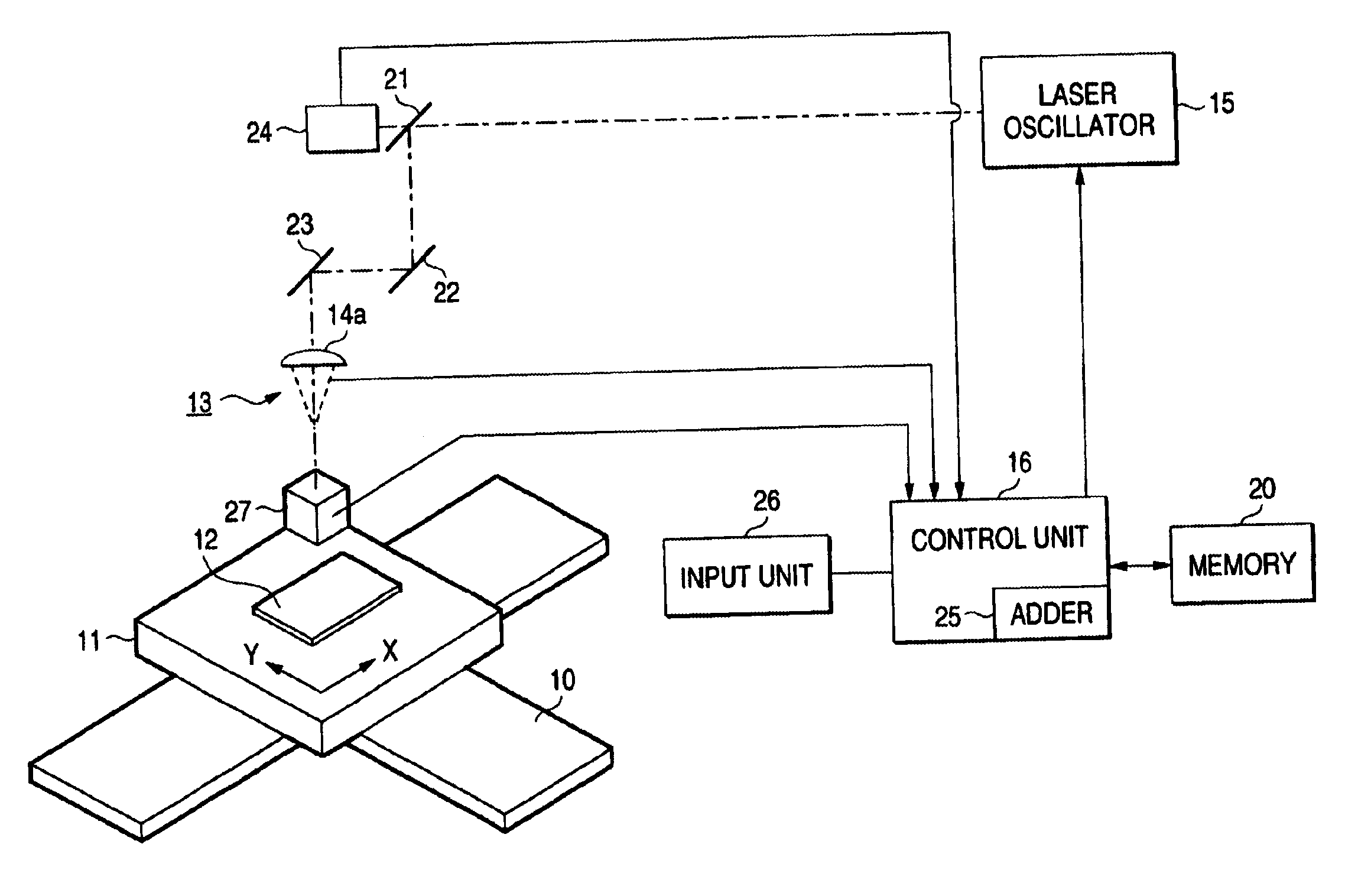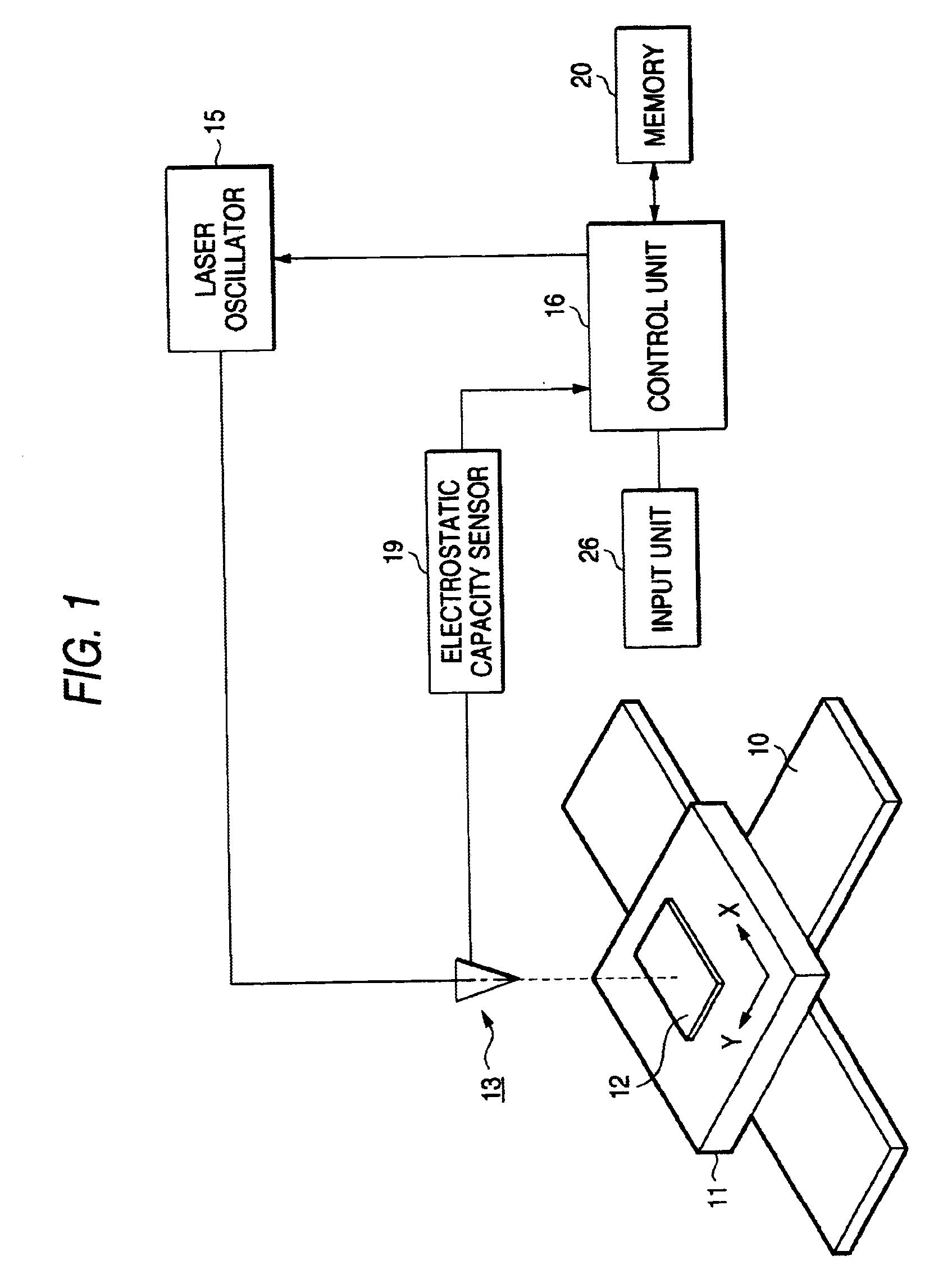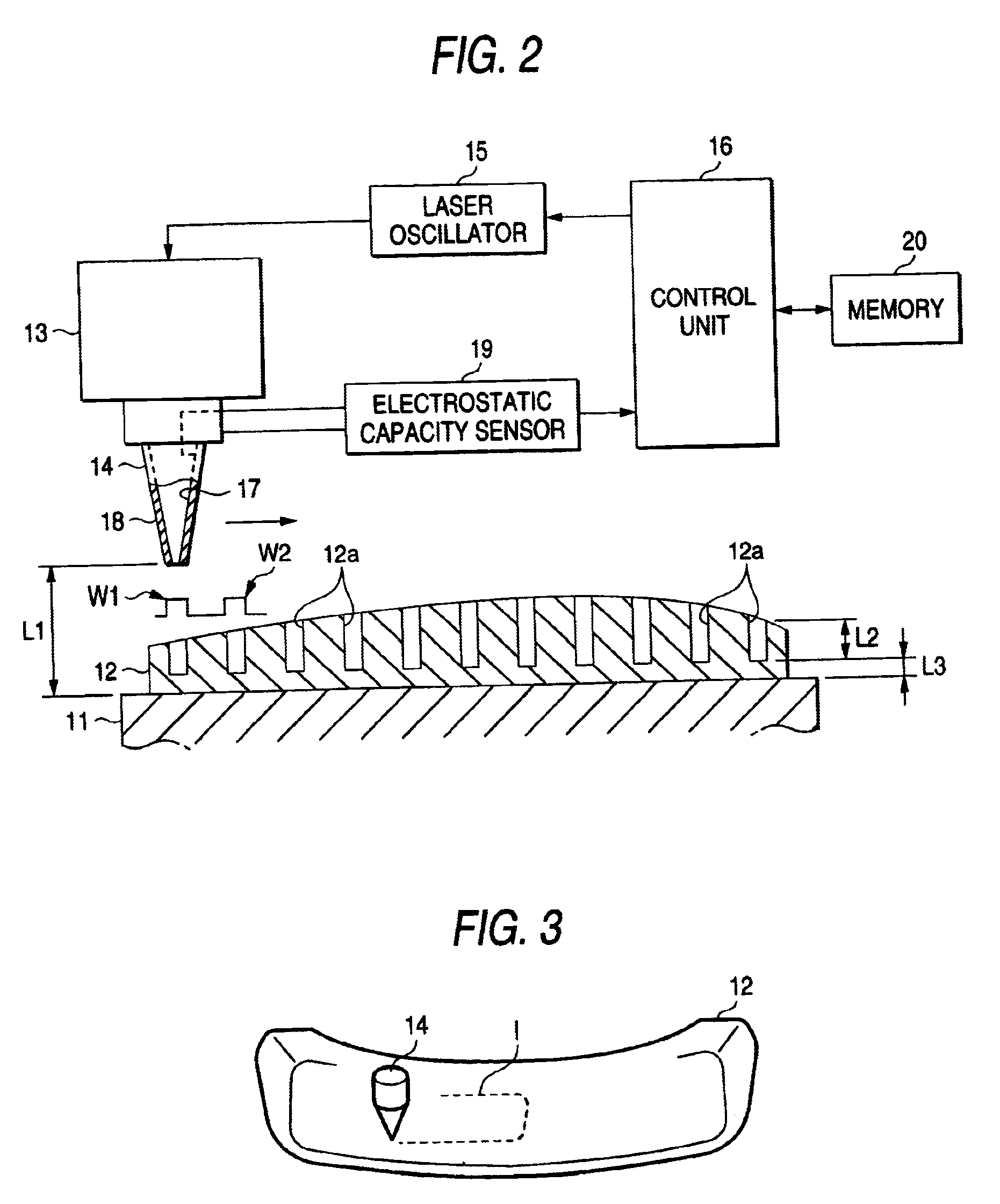Laser beam machining apparatus and laser beam machining method
a laser beam and machining technology, applied in the direction of manufacturing tools, vehicular safety arrangements, pedestrian/occupant safety arrangements, etc., can solve the problems of spoiling the external appearance, limiting driving activity, and difficulty in drilling blind holes in the instrument panel
- Summary
- Abstract
- Description
- Claims
- Application Information
AI Technical Summary
Benefits of technology
Problems solved by technology
Method used
Image
Examples
first embodiment
The following modification can be made to the invention.
According to the first embodiment of the invention, the number of output pulses P1 or P2 as the irradiation output power of the laser beam controlled by the control unit 16 is set changeable. On the other hand, the output power or output frequency of a laser beam as the irradiation output power of the laser beam is set changeable instead of the number of output pulses.
According to the first embodiment of the invention, moreover, the workpiece 12 subjected to the laser beam machining is an instrument panel for covering the air bag of an automobile. On the other hand, the invention is applied to forming grooves in a panel for covering an air bag to be incorporated in a steering wheel or any industrial material other than an instrument panel free from machining scars left in its surface.
According to the first embodiment of the invention, machining position data on the plurality of blind holes 12a, relative data on the detection vo...
second embodiment
the invention will now be described with reference to the drawings.
FIG. 7 shows a laser beam machining apparatus according to the second embodiment. Since respective constructions of a support member 11 forming a jig and a laser head 13 are substantially identical with those of the first embodiment, these detailed descriptions are omitted in this embodiment. Further, a workpiece 12 to be machined is an instrument panel shown in FIGS. 2 and 3 as well as the first embodiment.
As shown in FIG. 7, a laser oscillator 15 is connected to the laser head 13. A plurality of mirrors 21 to 23 and a focusing lens 14a are disposed between the laser oscillator 15 and the laser nozzle 14, so that a laser beam path is formed between the laser head 13 and the laser oscillator 15. One of the mirrors 21 to 23 is used as a half mirror 21 and part of the laser beam is passed through the half mirror. A detection sensor 24 as a laser beam detection unit is disposed on an optical transmission path and the ac...
PUM
| Property | Measurement | Unit |
|---|---|---|
| frequency | aaaaa | aaaaa |
| conductive | aaaaa | aaaaa |
| thickness | aaaaa | aaaaa |
Abstract
Description
Claims
Application Information
 Login to View More
Login to View More - R&D
- Intellectual Property
- Life Sciences
- Materials
- Tech Scout
- Unparalleled Data Quality
- Higher Quality Content
- 60% Fewer Hallucinations
Browse by: Latest US Patents, China's latest patents, Technical Efficacy Thesaurus, Application Domain, Technology Topic, Popular Technical Reports.
© 2025 PatSnap. All rights reserved.Legal|Privacy policy|Modern Slavery Act Transparency Statement|Sitemap|About US| Contact US: help@patsnap.com



